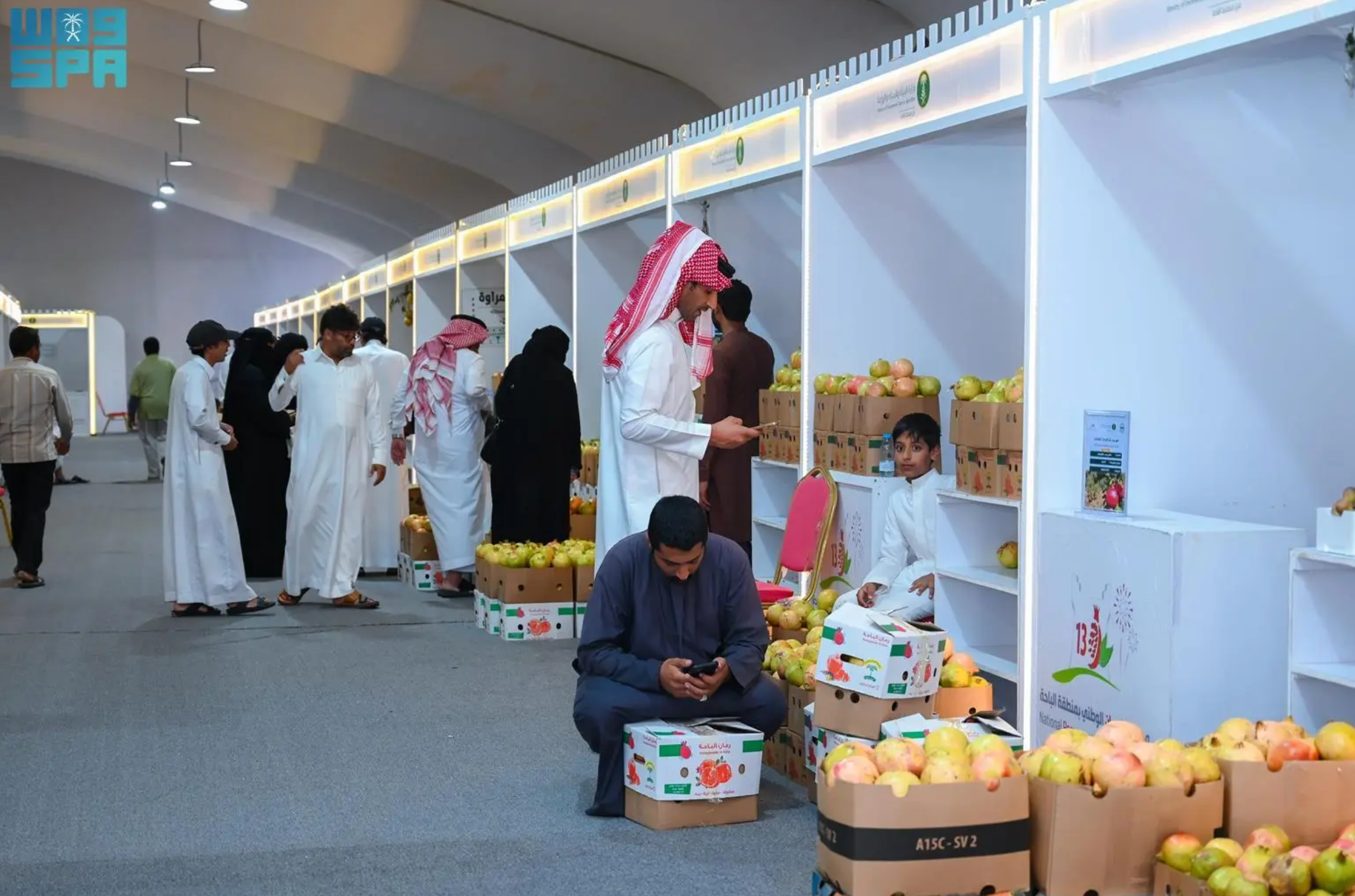
Al-Baha Ships Over 12,000 Pomegranate Cartons Across Kingdom in 4 Weeks
Amid a significant influx of Al-Baha’s pomegranates that exceeded expectations, over 12,000 cartons have been shipped via dedicated refrigerated trucks to major cities within the Kingdom, including Riyadh, Jeddah, and Makkah, in approximately four weeks.
With the onset of the pomegranate season and the ongoing 13th annual National Pomegranate Festival organized by the Ministry of Environment, Water, and Agriculture in the region, a group of young people from Al-Baha is actively involved in the harvesting and packaging of Al-Baha pomegranates.
One participant in the festival, Anwar Ahmed Al-Zahrani, told the Saudi Press Agency (SPA), “I have been participating in the festival from the beginning in the areas of packaging and transportation. This year, we have shipped between 1,200 to 1,500 cartons to Riyadh and Dammam every Friday, over 500 cartons to Jeddah, and 150 to 200 cartons to Makkah every Tuesday using refrigerated and equipped vehicles.”
He noted that shipping prices are affordable, ranging between SAR 25 to 30 per carton. He also confirmed plans to expand packaging, shipping, and delivery operations to Gulf Cooperation Council (GCC) countries in the upcoming season.
Farmer Mohsen Al-Zahrani stated that between 50 to 150 cartons are packed daily from a single farm, with larger farms producing even more. “Each carton contains between 15 to 20 pomegranates, while larger cartons can hold up to 36,” he said.
Several participants in the festival agreed that this year's demand for the pomegranate crop from the region's farms exceeds the supply, due to its high quality and the growing positive reputation the festival gains year after year.
The festival, which began nearly 12 years ago, is one of the most important events organized across the Kingdom. It has witnessed significant development in various aspects, attracting shoppers from major cities.
Its success has encouraged a new generation of youth to revive agricultural practices that were on the verge of disappearing, in an effort to preserve the region's agricultural identity and localize this trade, which is one of the main economic sources for the region’s residents.








